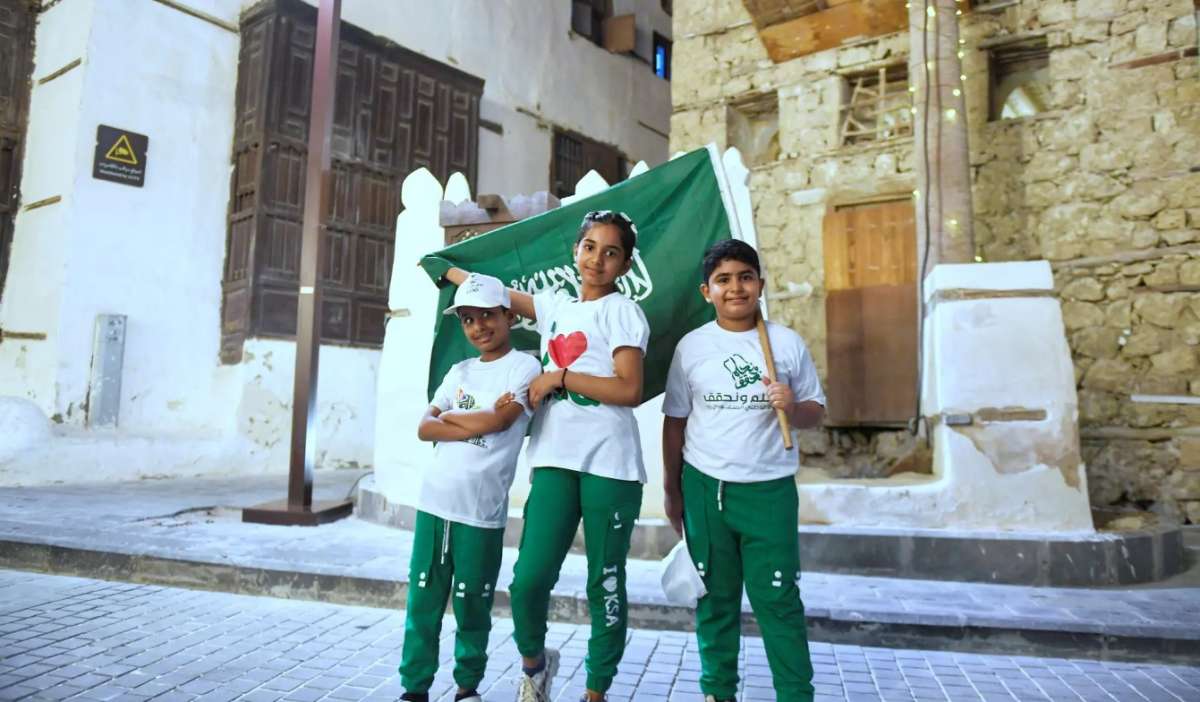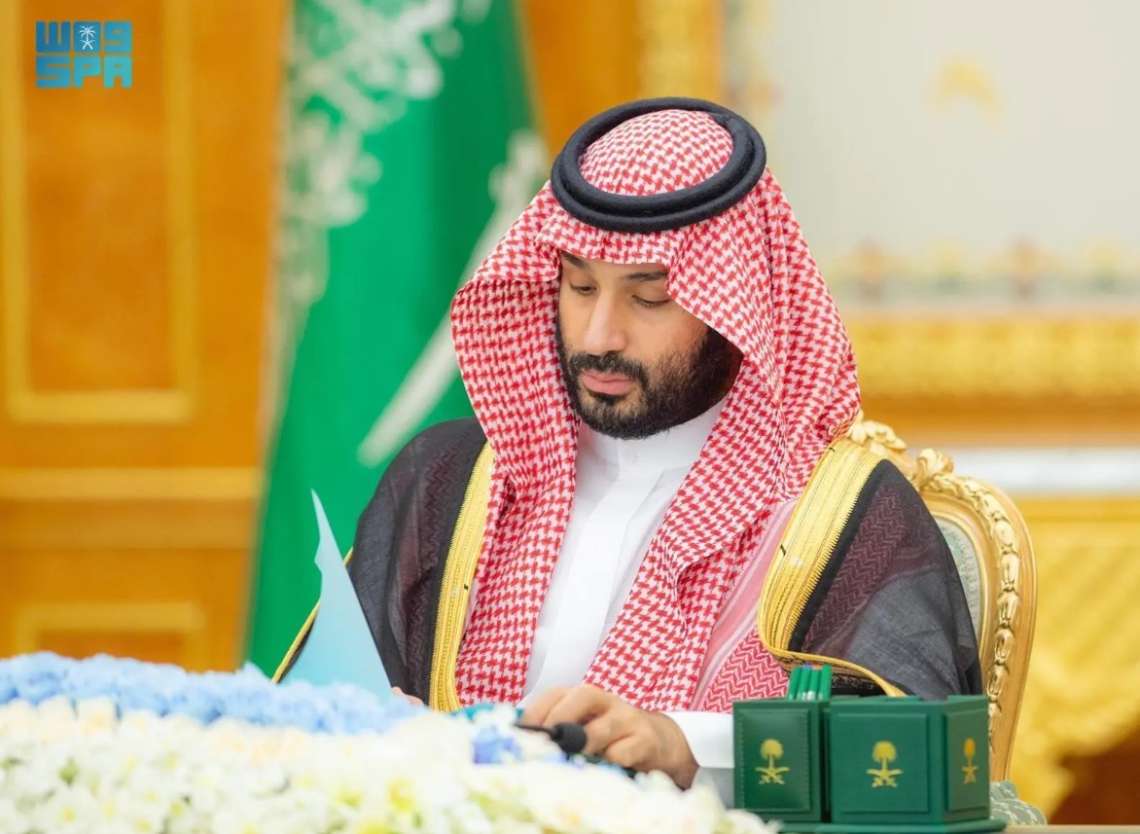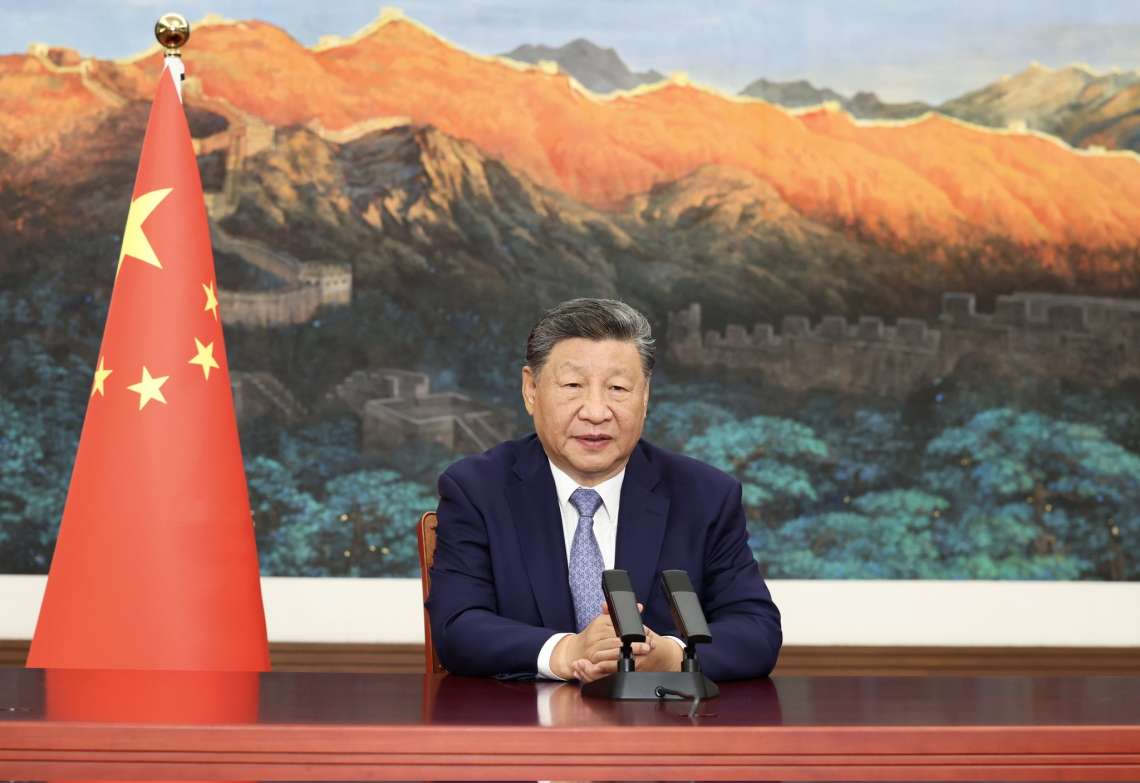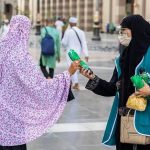A comparison between results from 2019 and 2023 reveals intriguing changes.
New YouGov survey explored Saudi residents’ attitudes to a variety of environmentally friendly behaviours, that we first questioned them about in 2019.
A comparison between results from 2019 and 2023 reveals intriguing changes. Across the 12 actions that we listed to reduce impact on the environment, buying locally produced/ sourced food (i.e., to reduce air miles on food) is the most popular option and the proportion of consumers practising this has increased – from 25% in 2019 to 28% in 2023.
Another area we see an increase in behaviour is buying things in multipack (from 20% in 2019 to 23% in 2023).
In other areas such as recycling, stopping or reducing use of plastic straws and buying or using refillable/eco refill products- there hasn’t been any change between the two periods.
Across all other actions, Saudi residents are now less likely to behave in ways which are less harmful to the environment.
The largest decline has happened around using canvas/ reusable bags when shopping. Although it remains a popular green action, the proportion of people practising this now has reduced from 29% to 22% during this period. Similarly, the practice of using supplies that try to help the environment/ avoiding products that are harmful to the environment has reduced from 32% to 28%.
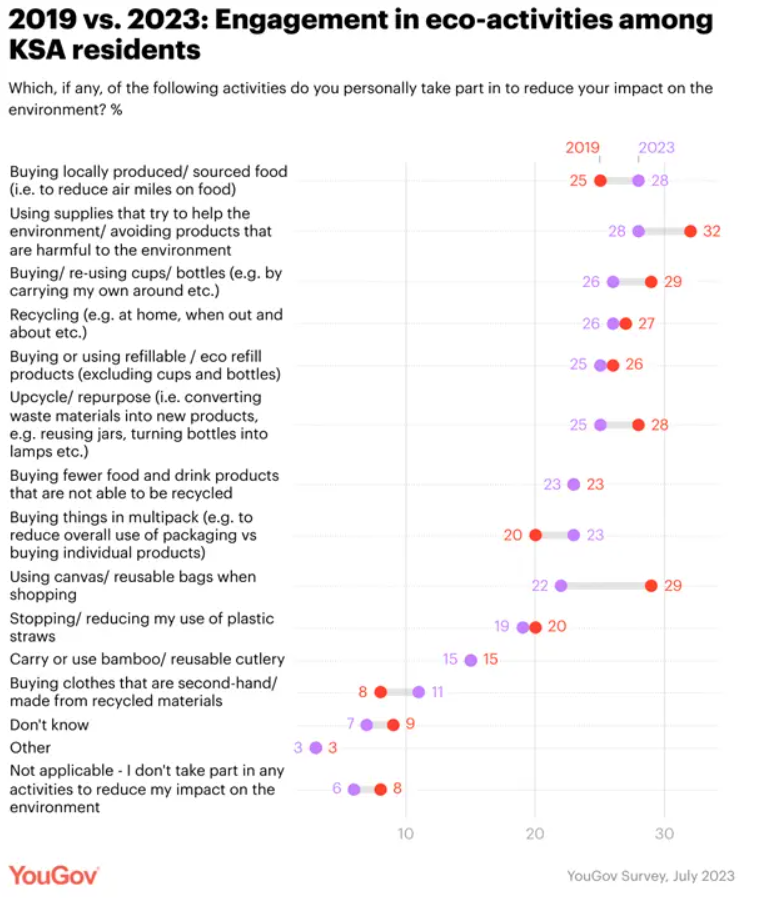
Buying/ re-using cups/ bottles, upcycling, and buying clothes that are second-hand/ made from recycled materials have also seen a decline during this period.
It is interesting to note that less than one in ten Saudi residents (6%) claim they don’t take part in any activities to reduce their impact on the environment, a decrease from 8% who said this in 2019.
We also delved into where consumers felt the job of reducing single-use plastic use should lie. The results revealed a shift in opinion between 2019 and 2023, with an overall reduction in the expectation that various entities like governments or companies should take responsibility.
In 2019, nearly two in five consumers (38%) saw themselves, the individual consumers, as bearing part of the responsibility. This figure fell to 36% in 2023.
Today, the largest proportion of Saudi residents think that along with individuals, companies that sell single-use plastic items should take the responsibility of reducing the country’s use of single-use plastic items (36%). This is followed by companies that produce single-use plastic items (34%).
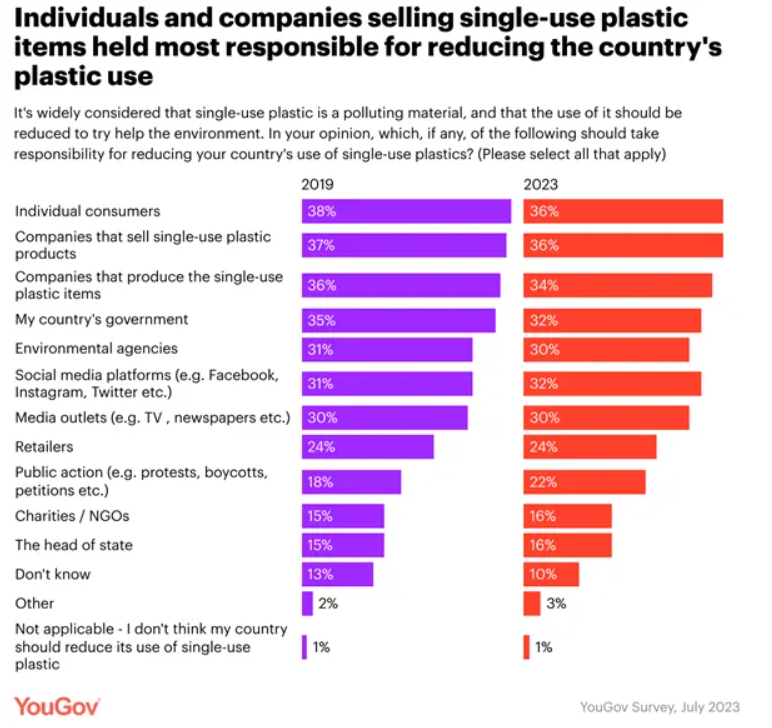
A third attributed the responsibility to the government, but it has fallen from 35% to 32% in 2023.
Expectation of retailers and media to help reduce plastic use remains the same, however expectation of charities/NGOs, environmental agencies, and social media has witnessed a slight change.
The only entity that saw an increase in attribution since 2019 is the public. The hope for public action to contribute to reduction efforts increased from 18% in 2019 to 22% in 2023.
ALSO READ: Saudi Fashion Commission Attracts Int’l Investment at New York Roadshow


